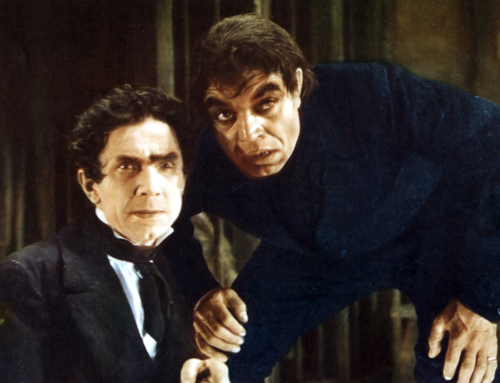Might Dante not have been better served had he peopled the Hell of his Divine Comedy with fictional characters of his own invention, instead of actually naming them and therefore damning them?…
 If one were asked to name the greatest work of literature of all time, there would be only a handful of serious contenders. Both of Homer’s classics would make the short list and perhaps Virgil’s epic would also qualify, and possibly one or other of Shakespeare’s tragedies. There is also little doubt that Dante’s magnum opus, The Divine Comedy, would make the grade as one of the all-time greats.
If one were asked to name the greatest work of literature of all time, there would be only a handful of serious contenders. Both of Homer’s classics would make the short list and perhaps Virgil’s epic would also qualify, and possibly one or other of Shakespeare’s tragedies. There is also little doubt that Dante’s magnum opus, The Divine Comedy, would make the grade as one of the all-time greats.
And yet, an e-mail that I’ve received from someone leading a small study group on The Divine Comedy has asked the awkward question that all readers of Dante are eventually forced to confront. “We’re around Canto 27 or so of the Inferno,” my correspondent informed me “and have already met a pope in hell with more before him and more to come after, and then an Italian bad guy who became a Franciscan and was reputed to have died in sanctity. (Plus numerous other named sinners.) Isn’t Dante committing the sin of detraction against these people? Isn’t he causing scandal by putting popes and other known people in hell? What are we supposed to do with this? Just ignore it? Call it poetic license?”
These are great questions that deserve and, indeed, demand answers.
My correspondent’s discomfort with what might be termed Dante’s judgmentalism is understandable. It’s not for any of us to presume that anyone is in hell. I think it fair, therefore, to question this aspect of Dante’s approach. In his defense, I would suggest that he wanted to avoid writing a crudely formal allegory about the deadly sins which would have been the case had he presented them as personified abstractions. In putting real people in hell and purgatory, it enlivens his story, bringing it to life literarily. He is, therefore, employing poetic license. Whether this is sufficient reason for the crime of judgmentalism is, however, questionable. Might he not have been better served had he peopled his afterlife with fictional characters of his own invention, suggestive perhaps and inspired no doubt by real life historical people, but not actually naming them and therefore damning them (at least literarily)? If he had done this, he would not only have avoided the sin of judgmentalism but would have saved generations of readers from having to read the historical context surrounding the real-life people whom he consigns to hell or purgatory.
Needless to say, there would be no problem with his naming of the canonized saints in Paradise but the irony is that Dante actually places a canonized saint in hell! He consigns Saint Celestine V to the vestibule of hell for what he termed Celestine’s “great refusal” to accept and embrace the papal office. Although Dante doesn’t name Celestine V directly as the “coward” who made the “great refusal,” it has been accepted by most critics that Celestine was indeed the “cowardly” soul whom the great Florentine singles out for his scorn. It seems that Dante vents his spleen against Celestine, not so much for his resignation per se but for the fact that his resignation had enabled Dante’s enemy, Boniface VIII, to become pope.
Leaving aside the problem with his naming of specific real-life popes and priests, Dante would be doing nothing wrong in placing fictional popes and priests in hell and purgatory. There have been many bad popes and priests and it is good to embrace and acknowledge the fact. Good Christians should not be afraid to admit that there are bad Christians, including bad priests and popes. Indeed, the paradox is that good Christians know that they are themselves bad Christians!
My final observation is that we should not allow this tragic flaw in Dante’s comedy to blind us to the beauty of the great poet’s engagement with sin (in hell and purgatory), with repentance (in purgatory) and with sanctity (in heaven). It is a majestic work, filled to the brim with Christian insight into man’s relationship with God and his neighbor. In short, we shouldn’t allow the mote in Dante’s eye to become the plank in ours!
Republished with gracious permission from Intellectual Takeout (June 2016).
The Imaginative Conservative applies the principle of appreciation to the discussion of culture and politics—we approach dialogue with magnanimity rather than with mere civility. Will you help us remain a refreshing oasis in the increasingly contentious arena of modern discourse? Please consider donating now.







I think it’s one of the most endearing things about Dante’s poem. It speak truth to the reality of apostasy and that nominalism endangers our souls. Always talking about the damned in abstract, faceless terms always makes it an issue “out there” somewhere. We must recognized there will be people in Hell we were just sure who weren’t supposed to be there (and conversely, in Heaven). Dante doesn’t have an infallible list of the damned, but he does have a theological license for regarding evil fruit as coming from an evil root.
If Dante had peopled it with fictional Popes, it would have convoluted the historicity. A significant theme is of the work is the Papal/Holy Roman Emperor conflict. Actual Popes and people were required to present actual situations and political ideas. Dante had to have real Popes and other people It would not have been the same work. In addition, fictional characters would have required much more character development. Dante achieves an incredible economy and force by letting the historical characters speak out of history.
Read Pope Benedict XV’s “Dante Encyclical”. It speaks for itself.